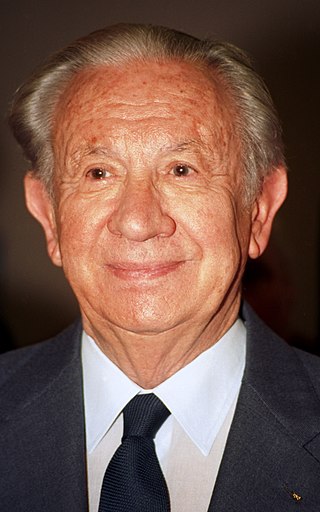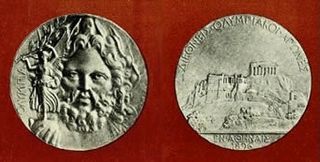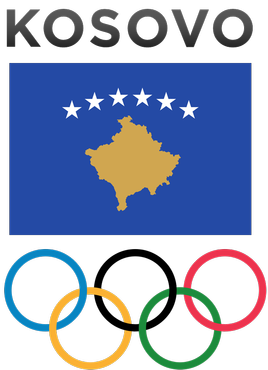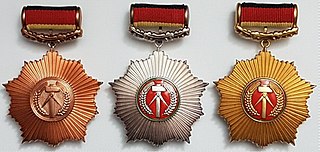Olympic Order
The Olympic Order is the highest award of the Olympic Movement and is awarded for particularly distinguished contributions to the Olympic Movement, i.e. recognition of efforts worthy of merit in the cause of sport. It was established in May 1975 by the International Olympic Committee as a successor to the Olympic Certificate . The Olympic Order originally had three grades (gold, silver and bronze), although the bronze grade fell dormant in 1984. Traditionally, the IOC bestows the Olympic Order upon the chief national organiser(s) at the closing ceremony of each respective Olympic Games.
The insignia of the Olympic Order is in the form of a collar (or chain), in Gold, Silver or Bronze according to grade; the front of the chain depicts the five rings of the Olympic Movement, flanked on either side by kotinos emblem (olive wreath). A lapel badge, in the form of the five rings in Gold, Silver and Bronze according to grade, is presented to recipients to wear as appropriate.
Nadia Comăneci is the only athlete to be awarded the Olympic Order twice (1984, 2004), as well as being its youngest ever recipient.

The Legion of Merit (LOM) is a military award of the United States Armed Forces that is given for exceptionally meritorious conduct in the performance of outstanding services and achievements. The decoration is issued to members of the eight uniformed services of the United States as well as to military and political figures of foreign governments.

Juan Antonio Samaranch y Torelló, 1st Marquess of Samaranch was a Spanish sports administrator under the Franco regime (1973–1977) who served as the seventh President of the International Olympic Committee (IOC) from 1980 to 2001.

An Olympic medal is awarded to successful competitors at one of the Olympic Games. There are three classes of medal to be won: gold, silver, and bronze, awarded to first, second, and third place, respectively. The granting of awards is laid out in detail in the Olympic protocols.

The International Olympic Committee (IOC) uses icons, flags, and symbols to elevate the Olympic Games. These symbols include those commonly used during Olympic competitions such as the flame, fanfare, and theme and those used throughout the years, such as the Olympic flag.

Krisztina Egerszegi is a Hungarian former world record holding swimmer and one of the greatest Hungarian Olympic champions of the modern era. She is a three-time Olympian and five-time Olympic champion; and one of four individuals to have ever won the same swimming event at three consecutive Summer Olympics. She is the first female swimmer to win five individual Olympic gold medals.

The Order of Orange-Nassau is a civil and military Dutch order of chivalry founded on 4 April 1892 by the queen regent, Emma of the Netherlands.

The Order of the White Lion is the highest order of the Czech Republic. It continues a Czechoslovak order of the same name created in 1922 as an award for foreigners. It was inspired by the Czech Nobility Cross created in 1814 by the Emperor and King Francis II and awarded to 37 Bohemian noblemen.

Political decorations of the Nazi Party were medals and awards issued by the National Socialist German Workers Party (NSDAP) between 1920 and 1945. Political awards were authorised for wear on any paramilitary uniform of Nazi Germany, as well as civilian attire, but were generally discouraged on Wehrmacht military uniforms. The Waffen-SS freely wore both political awards and military decorations on their uniforms.

Greece has competed at every Summer Olympic Games, one of five countries to have done so, and most of the Winter Olympic Games. Greece has hosted the modern Olympic Games twice, both in Athens for the Summer Olympic Games, in 1896 and 2004.

The all-time medal table for all Olympic Games from 1896 to 2024, including Summer Olympic Games, Winter Olympic Games, and a combined total of both, is tabulated below. These Olympic medal counts do not include the 1906 Intercalated Games which are no longer recognized by the International Olympic Committee (IOC) as official Games. The IOC itself does not publish all-time tables, and publishes unofficial tables only per single Games. This table was thus compiled by adding up single entries from the IOC database.

The Olympic Order, established in 1975, is the highest award of the Olympic Movement. It is awarded for particularly distinguished contributions to the Olympic Movement, i.e. recognition of efforts worthy of merit in the cause of sport. Traditionally, the IOC bestows the Olympic Order upon the chief national organiser(s) at the closing ceremony of each respective Olympic Games.

The Olympic Committee of Kosovo is the National Olympic Committee representing Kosovo. Officially established in 1992, the OCK became a full member of the International Olympic Committee and the Olympic Movement on 9 December 2014. It is responsible for Kosovo's participation at the Olympic Games.
The Star for Loyalty and Merit was a civilian award established on 1 January 1894 by Governor-General Carel Herman Aart van der Wijck of the Dutch East Indies. The star replaced the old Medal for Civil Merit, which had limited prestige and status according to the Netherlands government. The star was awarded in gold to "significant and meritorious" natives, and in silver to village chiefs and leaders of the "Eastern foreigner" communities. Dutch (Europeans) were not eligible to receive the star.

The Medal for Voluntary Military Service is a French military decoration established on 13 March 1975 by decree 75-150. It was established in three grades to recognize voluntary military service in the reserves.

Hungary competed at the 2012 Summer Olympics in London, from 27 July to 12 August 2012. Hungarian athletes have competed at every Summer Olympic Games in the modern era, except the 1920 Summer Olympics in Antwerp, and the 1984 Summer Olympics in Los Angeles because of the Soviet boycott. The Hungarian Olympic Committee sent the nation's smallest delegation to the Games since 1956 to London. A total of 159 athletes, 97 men and 62 women, competed in 18 sports.

The Patriotic Order of Merit was a national award granted annually in the German Democratic Republic (GDR). It was founded in 1954 and was awarded to individuals and institutions for outstanding contributions to the state and society in various areas of life.

The handball tournaments at the 2016 Summer Olympics in Rio de Janeiro was held from 6 to 21 August at the Future Arena in the Barra Olympic Park. The tournaments were won by Denmark in the men's competition and Russia for the women's tournament. The French teams for both competitions finished with the silver medal, and the bronze went to Germany and Norway, respectively.

The Honour medal of railroads is a state decoration bestowed by the French Republic in the form of an honour medal for work. It was originally meant to reward, depending on the quality and length of time calculated in calendar years, the services rendered by French agents and labourers and to nationals of the French Union or protectorates, in service with the railroads. The Honour medal of railroads was created by decree on 19 August 1913 as a reward for thirty years of service. Since then, many modifications were instituted by consecutive decrees amending the original text.
The Olympic Diploma of Merit was an award given by the International Olympic Committee (IOC) to recognise outstanding services to sports or a notable contribution to the Olympic Games. By 1974, the last time the awards were granted, just 58 people had received the award.
The closing ceremony of the 1984 Summer Olympics took place at the Los Angeles Memorial Coliseum in Los Angeles, California on Sunday, August 12, 1984, at 20:00 PDT.
















